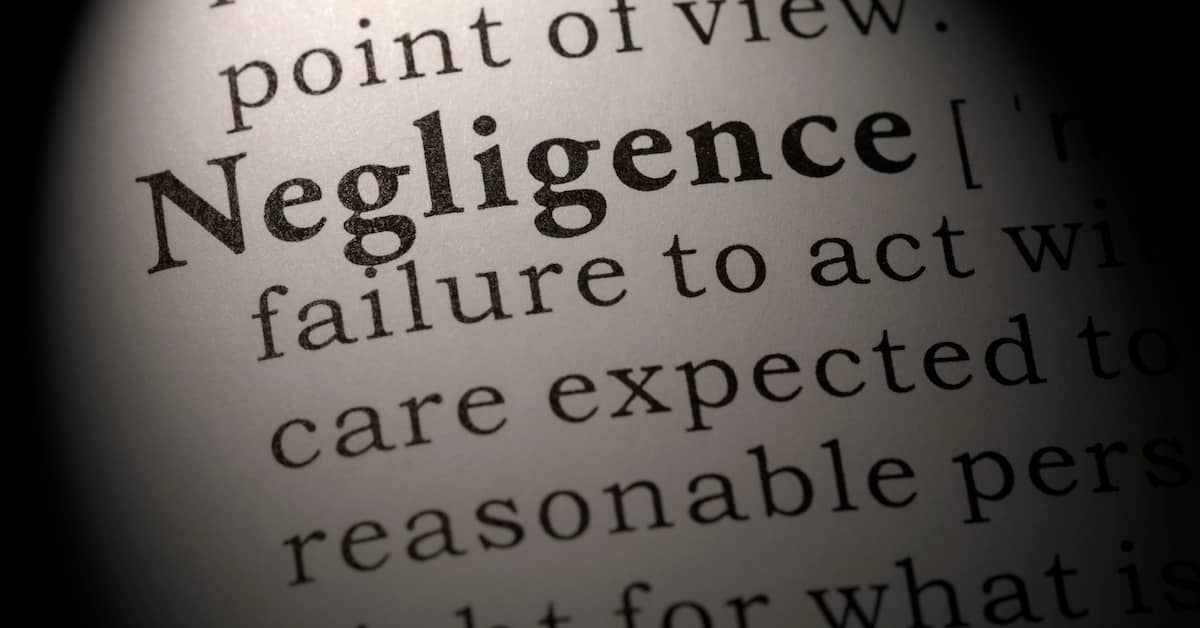
What Is the Difference Between Negligence and Gross Negligence?
In personal injury law, two terms frequently arise—negligence and gross negligence. Although they may sound similar, they are distinct concepts with different legal ramifications. Understanding the distinctions between these two is essential, not just for legal practitioners but also for potential plaintiffs seeking justice.
If you’ve found yourself injured due to someone else’s negligence, determining if it constitutes gross negligence will be vital to your claim for compensation. However, when dealing with the physical, emotional, and financial ramifications of an injury, the last thing you’ll want to take on is learning about the civil legal system. That’s where Maggiano, DiGirolamo & Lizzi can help.
Call our personal injury attorneys at (201) 585-9111 (New Jersey) or (212) 543-1600 (New York) for a FREE consultation. We are dedicated, courageous, and driven to attain justice for our clients.
What Is Negligence?
At its core, negligence is the failure to exercise the care that a reasonably prudent person would have exercised in a similar situation. It is a deviation from the standard behavior expected of a person in a particular scenario.
In legal contexts, proving negligence generally requires the demonstration of four elements:
- Duty: The defendant had a duty of care toward the plaintiff.
- Breach: The defendant breached that duty.
- Causation: An injury was a direct cause of the breach.
- Damages: The plaintiff suffered actual harm or damages due to the injury.
In both New York and New Jersey, negligence serves as the foundational principle in personal injury cases. Whether it’s a truck accident, construction accident, or medical malpractice, negligence often plays a critical role in determining liability.
Read More: What Is Negligence?
What Is Gross Negligence?
Gross negligence takes ordinary negligence a step further. It’s not just a mere lapse in judgment or oversight; it’s a severe and reckless disregard for the safety or lives of others. Gross negligence goes beyond carelessness to indicate a conscious and voluntary disregard for the need to exercise reasonable care.
To paint a clearer picture, consider a driver who runs a red light because they are momentarily distracted—this could be construed as ordinary negligence. But if that same driver knowingly speeds through multiple red lights in a dense pedestrian area just for the thrill of it, that behavior could be classified as gross negligence.
Legal Consequences & Distinctions
The distinction between negligence and gross negligence isn’t merely academic; it has significant legal implications:
Damages
In some instances, particularly where contracts contain exculpatory clauses that protect parties from liability for their own negligence, proving gross negligence can be a means to circumvent these clauses and obtain damages.
Punitive Damages
Punitive damages are meant to punish and deter especially egregious behavior. They are rarely awarded, primarily because negligent parties are typically not subjected to penalties exceeding the need to provide monetary compensation to those they’ve injured. However, in many jurisdictions, punitive damages can be awarded in cases of gross negligence or intentional wrongdoing.
Read More: What Are Punitive Damages?
In New York, punitive damages may be awarded without a cap in cases of grossly negligent, intentional, or exceedingly harmful behavior. In New Jersey, on the other hand, gross negligence does not meet the “burden of proof” for the application of punitive damages, per N.J. Statutes § 2A:15-5.12. Instead, there must be an act of malice and a wanton and willful disregard for others to meet the standard for this type of award.
Immunity and Protections
Certain statutory protections or immunities might shield individuals or entities from negligence claims. However, these shields may not extend to acts of gross negligence. For instance, suppose a public employee causes harm through grossly negligent conduct. The usual process might place the liability on the government organization; however, with gross negligence, the employee may bear the brunt of liability directly.
What Are Some Examples of Gross Negligence?
Below are some examples of incidents that might qualify as gross negligence, depending on the severity and recklessness of the actions involved and the jurisdiction in which they occur:
Drunk Driving
A person driving under the influence of alcohol or drugs when they cause an accident and injuries could be found grossly negligent, as their behavior shows a severe disregard for the safety of others.
Medical Malpractice
A healthcare professional could be deemed grossly negligent if their actions deviate drastically from the standard of care. For instance, if a surgeon operates on the wrong body part or leaves a medical instrument inside a patient.
Premises Liability
Property owners could be held grossly negligent for ignoring evident hazards on their premises. For instance, if a landlord knew about a faulty staircase but didn’t fix it, leading to a tenant’s severe injury.
Product Liability
Manufacturers could be held grossly negligent if they knowingly sell defective or hazardous products without warning the public, leading to severe injuries or deaths.
Please note, though, that these are just examples. Whether a specific case amounts to gross negligence would depend on the particular facts and circumstances, as well as the interpretation of the law by the courts. In such situations, consulting with a knowledgeable personal injury attorney is crucial to understand one’s legal rights and options.
A Personal Injury Lawyer Can Help!
While the distinction between negligence and gross negligence can seem simple, its implications are profound. For those seeking redress for personal injuries, it’s important to understand these differences between ordinary and gross negligence and to have a legal team that can navigate the complexities of New York and New Jersey law.
At Maggiano, DiGirolamo & Lizzi, we pride ourselves on our ability to understand, strategize, and champion our clients’ causes. If you believe you’ve been a victim of negligence or gross negligence, don’t hesitate. Reach out for a FREE consultation and let our team guide you in the pursuit of justice.
Contact our personal injury attorneys today! We approach cases with courage, dedication, and an unwavering commitment to those we represent. Let us ensure you are pursuing the just compensation you deserve for your losses. Our personal injury lawyers are proud to help protect the rights of the injured in both New York and New Jersey.


















